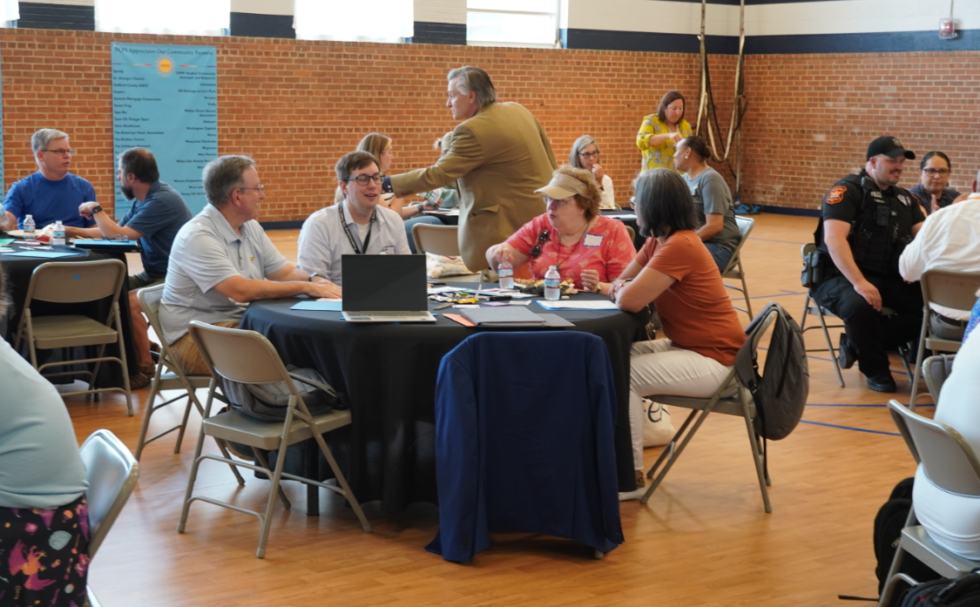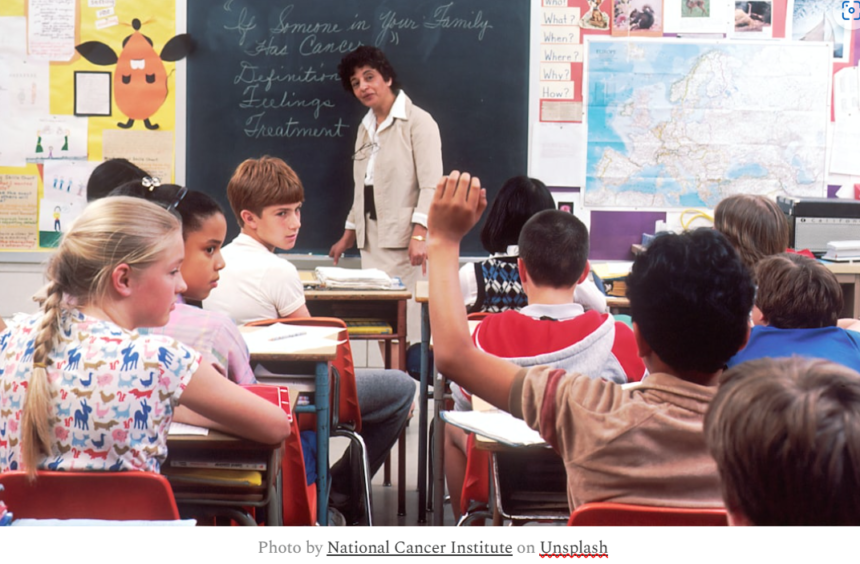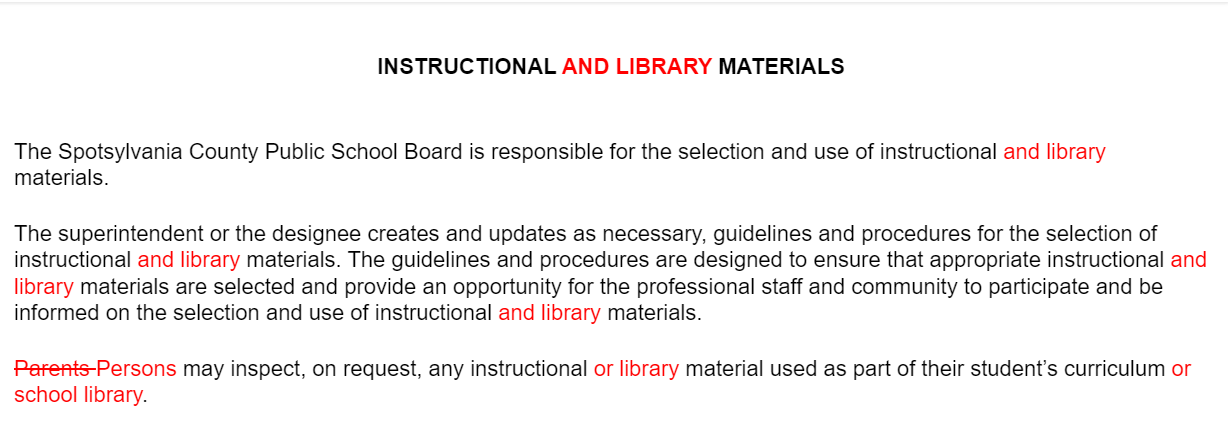
Forty middle and high school teachers gathered for a working lunch this week.
Fredericksburg City’s middle and high school teachers who attended a working lunch on Tuesday agree that the division needs to become phone-free and that the best way to achieve this is by locking student devices in secured pouches during the school day.
“I do see the phone-free environment as necessary to support what the kids need developmentally,” Mari Tolliver, a Spanish teacher at James Monroe High School, told the Advance.
Tolliver was one of 40 teachers who attended Tuesday’s lunch to provide input on policies and procedures for implementing a cell phone ban, which she said teachers overwhelmingly support.
“We are mainly concerned with protecting the classroom environment and instructional time,” she said.
She said that for teachers this past year, trying to enforce a phone-free policy in class without a firm division-wide general policy banning phones was like “playing whack-a-mole.”
“You’re telling kids to put away their phones and five minutes later they will have it out again, because they can’t resist,” she said.
Tolliver, who is going into her third year as a full-time Spanish teacher at James Monroe, said “more than half” of her students will take their phones out during class, even though current policy states the devices are to be turned off and put away in backpacks during the school day, except for breakfast and lunch.
“I think it’s definitely gotten worse in terms of a child not being able to get through class without needing to check their phones,” she said. “They are unwilling to follow instructions to put it away in their backpacks. They always have to keep it on the desk because they think something is going to happen that requires their attention.”
Deputy superintendent Matt Eberhardt presented the division’s plans to go phone-free at the last School Board meeting.
“It’s time for all of us to tackle this issue of students who are either addicted to social media or flagrantly disregard the rules,” Eberhardt said in a press release issued by the school division this week. “Teachers want to teach and don’t want to police students and cellphones.”
Board members, though in support, had questions about how a ban would be implemented and enforced. Tuesday’s lunch was a chance for teachers to provide input into a draft policy and regulation, which will be presented to the Board for a first read in July, Tolliver said.
A majority of the teachers agreed that the best way to ease students from their phone-dependency would be through use of Yondr pouches, Tolliver said.
Devices—including smartwatches, earbuds, and headphones—will be secured in the pouches, which will locked upon entering the building and unlocked when the student leaves for the day.
“I think the physical barrier of the Yondr pouch will be a help,” Tolliver said. “It will help to put a little barrier there to support [the kids], so they can’t just pick up the phone at a random time.”
The teachers agreed that students should be able to use their devices on school buses, during extracurricular activities, and potentially during field trips.
Tolliver said consequences for violating the phone-free policy still need to be worked out, but a possibility is that the phone will be confiscated and kept in the office until the end of the day.
The school division administrative team will meet this week and next to discuss consequences for students not following expectations, James Monroe High School principal Marcus Petty said in the division’s press release.
Tolliver said the “hope” is that the School Board approves the new phone-free policy and related regulation on first read when it is presented in July, to give time for the community to prepare for implementation on the first day of school—August 6.
“It was a really positive meeting,” Tolliver said. “This really will help the kids. I know they might object to it at first, but I’m pretty confident that at the end of the day, we’ll see some of the benefits that other schools are seeing.”





